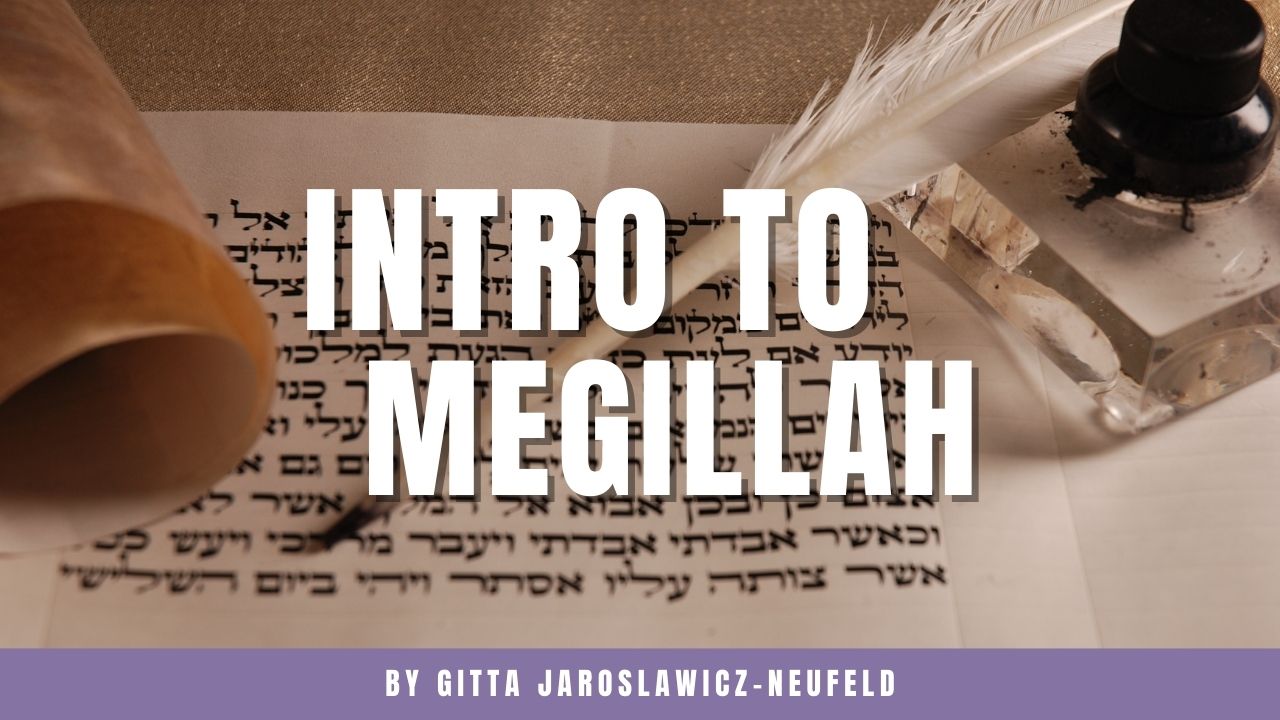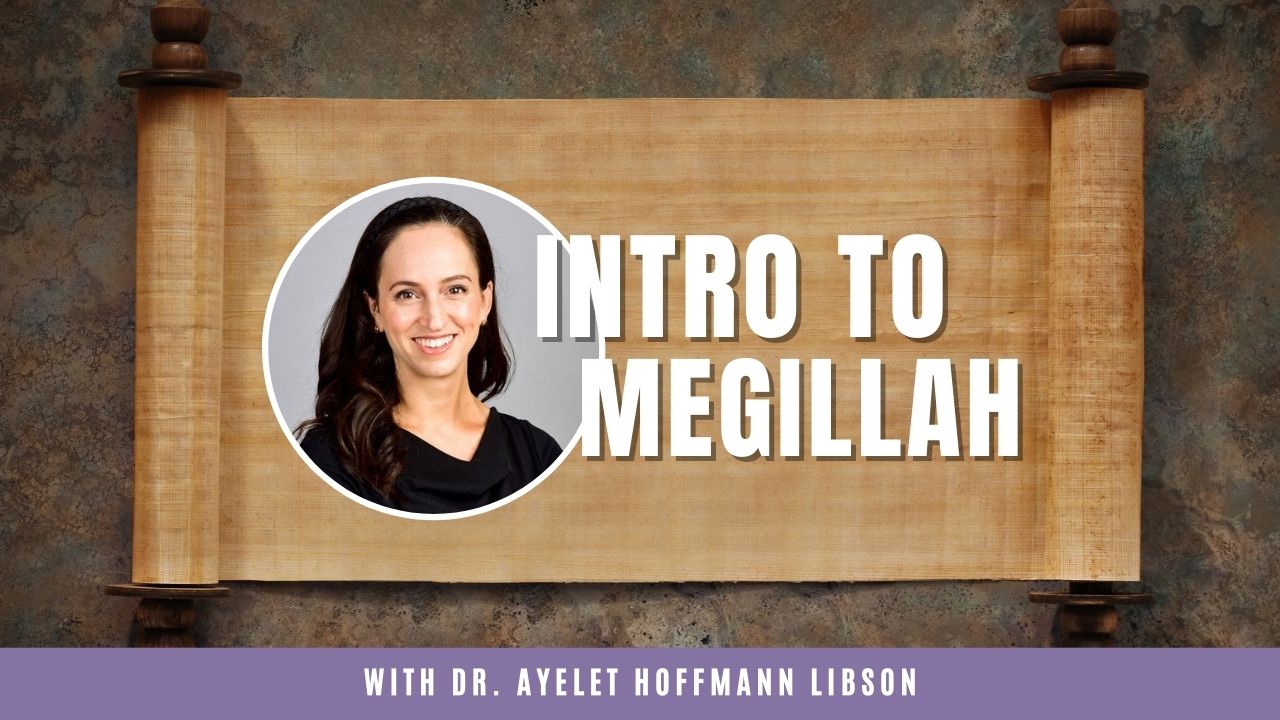See all Masechtot
Megillah
Dapim
Focuses on the laws of Purim, Torah reading, and synagogue etiquette, as well as analyzing the story of Esther in the Megillah. The masechet discusses the laws and customs associated with Purim and the public reading of the Megillah, including the procedures for Torah reading and conduct within the synagogue.
How Hadran Can Help You Learn
Lessons for every daf
Learn every daf of the masechet with a 45-minute shiur from Rabbanit Michelle Farber, drawn from our Daf Yomi archive.
Helpful reminders
Set personalized notifications to help you remember and stay on target with your learning goals.
Broaden your knowledge
Dive into topics mentioned in the masechet with Beyond the Daf classes and podcasts from top women scholars.
Definitions and explanations
Understand important Talmudic vocabulary terms and concepts with the Hadran Glossary’s clear, approachable explanations.
Get an overview
Before committing to a masechet, listen to its introduction by Dr. Ayelet Hoffman Libson to see if it speaks to you.
Celebrate your learning
Make a meaningful siyum when you complete a masechet, using Hadran’s guides to siyum practices and texts.
Intro to
Megillah
Focuses on the laws of Purim, Torah reading, and synagogue etiquette, as well as analyzing the story of Esther in the Megillah. The masechet discusses the laws and customs associated with Purim and the public reading of the Megillah, including the procedures for Torah reading and conduct within the synagogue.
Beyond the Daf related shiurim for
Megillah
Expand your understanding of the topics in this masechet with classes and podcasts from top women Talmud scholars.
Filter easily by daf here
Introduction to Masechet Megillah
Introduction to Megillah
Megillah 2: So Many Days of Reading the Megillah
Megillah 3: Translation Is Interpretation
Megillah 4: Rabbinic Megillah Reading (by definition)
Megillah 5: Rabbi Yehudah HaNasi: Mishnah Compiler and… Gardener
Megillah 6: Adar I vs. Adar II
Megillah 7: The Year Rabbi Zeira Woke Up Dead after Purim
Questions & Answers
How do I start learning this masechet on the Hadran site?
Just click the “Start Now” button at the top of this page. You will be prompted to register as a Hadran user (it’s free!). After you register, you will be able to track your progress in the masechet by marking the dapim and lessons you have completed. You can also set personalized notifications to remind you to learn at set times.
If you just want to browse through masechtot or look up specific dapim, you can do so without registering as a user.
I’ve never really learned Gemara before. Is this a good masechet for me to start with?
Since the Talmud is organized in a non-linear manner, you can start with any masechet. If you feel like you are missing background or understanding, don’t worry – that is everyone’s experience when it comes to starting Talmud study! Your understanding will grow and deepen as you go along.
In the Masechet Recommendations section on our Learn a Masechet page, you can choose the “For Beginners” tag to see our suggestions on masechet selections for those new to Gemara study. These selections typically deal with familiar topics (e.g. blessings, holidays) and/or are less complex from a logical standpoint.
If you would prefer to get some more background, context or skills before diving into a masechet on your own, you’re welcome to take a Hadran course. You can start with our “The Complete Beginner’s Guide to Gemara” series, which introduces the context and background of the Talmud – or one of our Basic Gemara Tools courses, which give you foundational Gemara skills through the process of learning a selected Talmudic text.
How in-depth should I learn a masechet?
That’s up to you! Some people will want to learn several dapim a day, whereas others can spend months on just one daf!
Each lesson you will find here was originally prepared as a Daf Yomi class, and so it will take about 45 minutes to cover each daf. If you want to delve deeper, you can check out the Beyond the Daf resources associated with the masechet you are learning.
When can I make a siyum on a masechet?
A siyum is a celebratory gathering customarily made when one completes the study of a masechet. It usually involves recital of the special Hadran text and Kaddish, sharing of divrei Torah and a festive meal. For more details, see the What is a Siyum page.
How can I set myself up for success in learning a masechet?
Consistency is the key to success in studying Talmud. We recommend you set aside time for your learning project. It can be a short time or a long time, daily or weekly – the key is that it is a set time that works with your routine.
No less important to your success is choosing a masechet that you are excited about learning! That way you will be motivated to stick to your learning schedule.
You can use Hadran’s notification settings to remind you about your learning schedule and goals. Keep track of your progress by marking off dapim and lessons as you complete them.
Are these Talmud study resources really all free of charge?
Yes! We believe that Talmud should be accessible to those who desire to learn it.
Most of our resources are developed with the help of contributions from Hadran students, so we do appreciate when learners support Hadran’s efforts.
Finished? Make a Siyum!
A siyum is a celebratory gathering customarily made when one completes the study of a masechet. It usually involves recital of the special Hadran text and Kaddish, sharing of divrei Torah and a festive meal.
Glossary
Here you’ll find definitions and explanations for some of the key terms in this masechet. See more here.
Chomesh
When the original owner redeems something from Temple sanctity, she must pay an additional 25% of its value as a penalty. This is called a fifth (חומש), because the total payment equals a fifth of the adjusted amount including the penalty. For example, redeeming an item worth 100 requires paying 125—making the extra 25 a fifth of 125.













